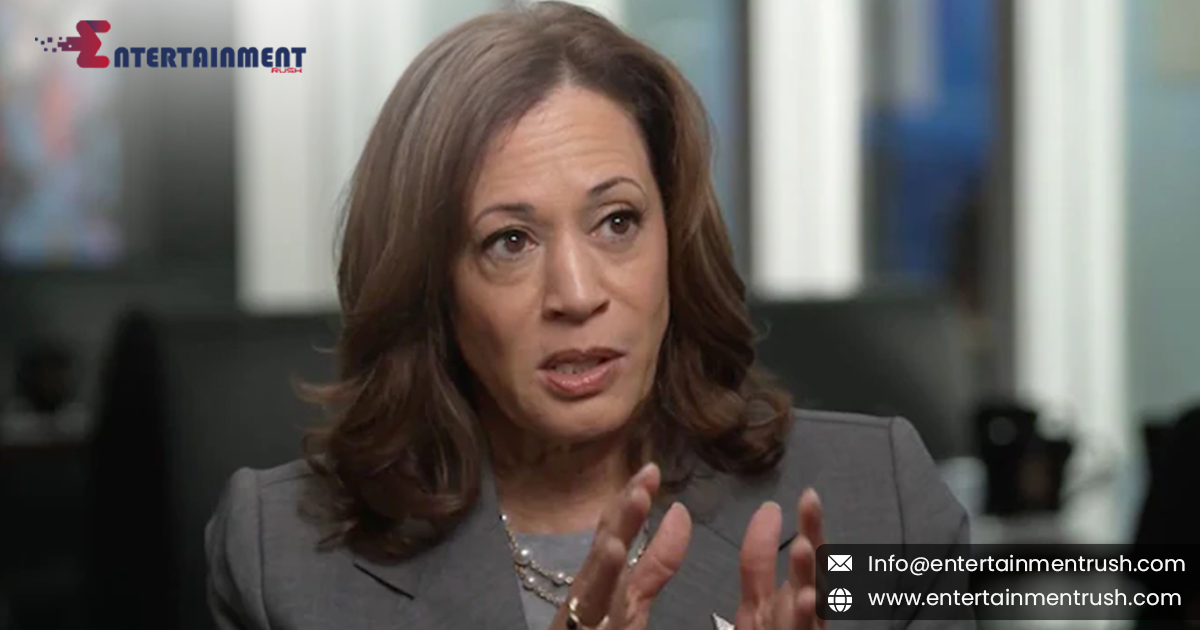A prominent figure’s image may be greatly impacted by every interview in the quick-paced realm of political media. Vice President Kamala Harris was under fire recently after a TV appearance that was thought to be ambiguous and uninformative. This blog explores whether Kamala Harris’s ambiguous TV interview damaged her reputation by examining the effects of similar interviews on public perception and political reputation.
The Interview in Question
Kamala Harris came under fire throughout the interview for giving answers that some observers and spectators thought were ambiguous and noncommittal. Her incapacity to respond to certain concerns with precise information and the general sense that her answers were intended more as a diversion than as an engagement with the matters at hand were the main points of criticism. Discussions concerning the possible effects of this perceived ambiguity on her public image have been sparked.
Impact on Public Perception
Credibility and Trust: Political leaders must possess the qualities of decisiveness and clarity. When Kamala Harris responds incoherently, it raises questions about her dependability and capacity to handle challenging situations. Some voters may doubt her expertise and credibility due to the lack of precision in her comments.
Media and Public Reaction:
Public perception is significantly shaped by media coverage. Uncertain interviews frequently result in harsh media critiques and criticism, which might highlight the interview’s drawbacks. The media narrative that follows may have an impact on how the general public perceives Harris and her performance as vice president.
Political Opposition:
Political rivals to attack and question a leader’s abilities might use such interviews. Uncertainty in an interview gives Harris’s detractors more fodder, which might bolster their claims and damage Harris’s reputation with voters.
The Role of Media Training
Politicians must receive media training in order to explain their policies and respond to challenging inquiries. A well-prepared speaker can speak clearly and confidently on difficult subjects. If Kamala Harris was evasive throughout the interview, it may cast doubt on how well she prepared for the big interview and handled the media.
Analyzing the Consequences
near-run Effects: A hazy interview may cause instant bad press and a decline in public perception in the near run. Harris may see a decline in her approval ratings and face criticism in the future on her ability to answer important subjects in interviews.
Long-Term Impact:
The effectiveness with which Harris and her staff respond to the criticism will determine the long-term effects. A calculated reaction that restates her commitment to the important causes and clarifies her viewpoint might help lessen the harm and win back the public’s trust.
Opportunities for Improvement:
While the interview may have hurt her image, it also presents an opportunity for growth. By addressing the feedback and improving her communication strategies, Harris can strengthen her public image and enhance her effectiveness in future interactions.
Kamala Harris’s vague TV interview has sparked debate about its impact on her image. While the lack of clarity in her responses may have raised concerns about her credibility and effectiveness, the ultimate impact will depend on how she and her team manage the fallout and improve communication strategies moving forward. In the competitive world of politics, every interview is a chance to shape public perception, and learning from these experiences is crucial for maintaining and enhancing a political leader’s reputation.
